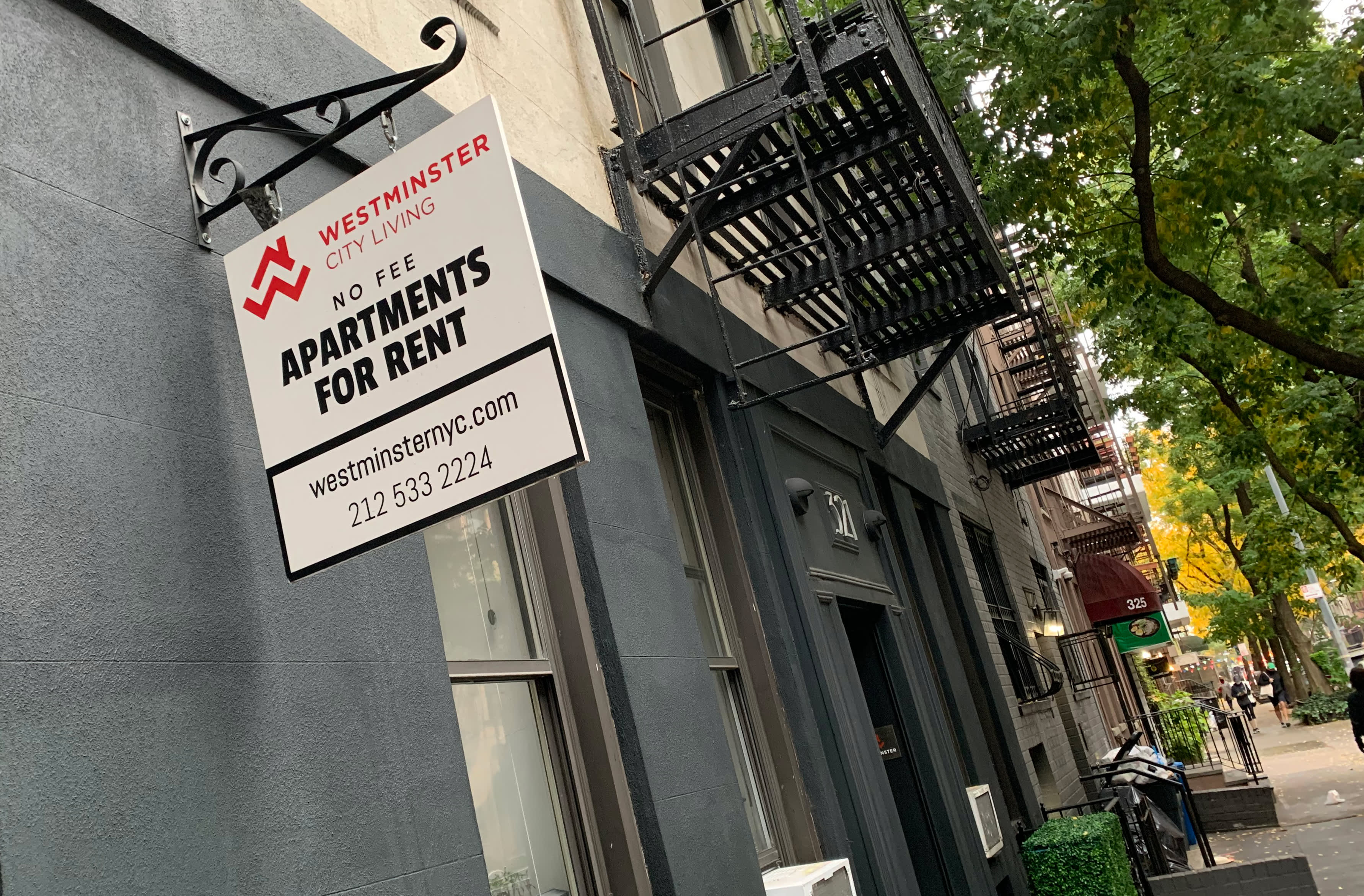Sign advertising apartments for rent in the Upper East Side in New York City.
Adam Jeffery | CNBC
A sharp increase in the use of online rental applications since the start of the coronavirus pandemic has caused a consequent jump in red flags for fraud.
The percentage of so-called fraud triggers detected by TransUnion increased nearly 30% from March to August, according to the credit reporting agency.
TransUnion defines fraud triggers as applicant statuses with failed authentication and/or identified as high risk. They reached a high of 15.2% in August, compared with 10.3% over the same period last year.
”What Covid has done is accelerated the rental industry’s adoption of technologies in the digital environment to become contactless,” said Maitri Johnson, vice president of TransUnion’s tenant and employment business. “As this acceleration into the digital environment has occurred, it also has opened up the prevalence of fraud much more so.”
As a result, the multifamily rental industry is now at higher risk. Since the pandemic began, the frequency of actual fraud incidents has jumped by nearly 50%, according to TransUnion’s survey of 82 multifamily executives. Another quarter saw up to 100 instances of fraud in their portfolios in the past year. While many were able to flag fraudsters before they moved in, 41% said they missed it, and the applicant moved in.
These fraud cases are largely about faking the identity of the tenant. They include using someone else’s driver’s license, stealing someone else’s Social Security number from the dark web or inventing a new identity entirely, known as synthetic fraud.
Synthetic fraud involves building a credit profile for a person who doesn’t exist and then using that profile to open credit cards to buy merchandise. The rental home then becomes a part of the crime.
”Taking this fictitious persona, applying for apartment home, it all checks out, and they get access to an apartment home, and they eventually use it as a drop zone for all their spend. Then they will skip out in the middle of the night,” Johnson said.
It all leaves the landlord holding the bag. Two in 3 executives told TransUnion they were concerned about fraud growth within their communities. With thousands of valid tenants now behind on their rent because of the pandemic, this only adds to the burdens of property management companies and adds to the losses of property owners.
“If you’re trying to evict someone, but that someone doesn’t exist, how do you do that?” Johnson said.
